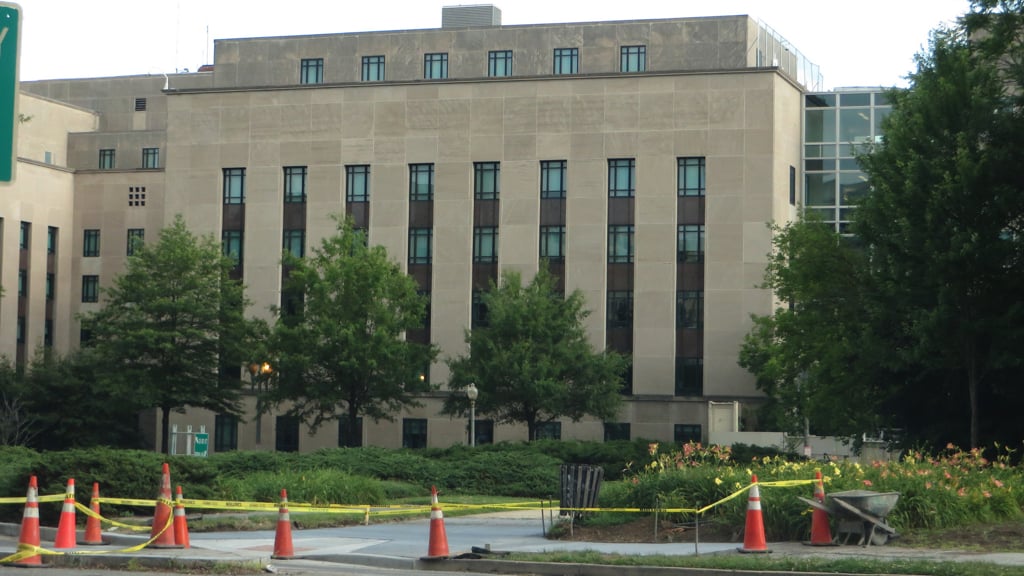For decades, career foreign service officers posted in US diplomatic missions around the world have been expected to remain relatively apolitical. Many have represented the country under both Republican and Democratic administrations, and carried out their duties without treaty-shredding incidents. But what’s an ambassador to do when the president they’re serving under causes a diplomatic scuffle?
As evidenced by current ambassadors’ responses to President Trump’s alleged complaints that the United States is allowing people from “shithole countries” to come here, there’s not much that top diplomats can say. The US has no current ambassador serving in Haiti, one of the countries Trump went after, and its chargé d’affaires, Robin Diallo, has stayed mum on the subject, at least publicly. Diallo was tweeting about Miss and Mister Haiti around the time Trump’s remarks became public knowledge; on Friday morning, she was summoned to the presidential palace in Port-au-Prince.
My favorite pic of today… with Miss and Mister Haiti. #USAIDHaiti #USEmbassyHaiti pic.twitter.com/txpIUCA6wn
— Robin Diallo (@diallorr) January 11, 2018
At 2:08 AM on Friday morning, the State Department’s Africa Media Hub tweeted out, “US remains committed to working together w/Africans to realize the promise of a more peaceful, more productive, more prosperous 21st century Africa.”
US remains committed to working together w/Africans to realize the promise of a more peaceful, more productive, more prosperous 21st century Africa. US deeply respects the people of #Africa & values its partnerships with them.
— US Africa Media Hub (@AfricaMediaHub) January 12, 2018
But these reassurances by the State Department began to feel more hollow on Friday when Senator Dick Durbin confirmed the President had indeed dismissed these “shithole countries” in his meeting with lawmakers the day before.
Nicholas Burns, a former ambassador to NATO and Greece who is now a professor of diplomacy at Harvard’s John F. Kennedy School of Government, says that the question of how to respond to a report like the one published Thursday is “about as difficult a decision that an American ambassador can face.” Burns, who served under Presidents Bill Clinton and George W. Bush, says “In my own diplomatic career, I never encountered anything like the situation our ambassadors face today in the wake of President Trump’s ignorant and racist comments.”
Many top diplomats have simply chosen to quit rather than continue on under the Trump administration. In November, Elizabeth Shackelford, a political officer based in Kenya who was seen as a future leader in the State Department, resigned over Secretary of State Rex Tillerson’s efforts to drive out career officers and slash the agency’s budget. On Friday, John Feeley, the ambassador to Panama, resigned, saying he could no longer work for Trump. Since Trump took office last January, about 60 percent of the State Department’s career ambassadors—the diplomatic equivalents to four-star generals—have left the government.
“The thing is, I think the leaders of these countries understand that the President is inclined to say things off the cuff,” says Vicki Huddleston, a retired foreign service officer who served as ambassador to Mali and Madagascar. She stressed in a situation like this, it’s important for diplomats to instead consider, “The man and the woman in the street, because they see this American president saying terrible things about their countries. How do you reach out to these people to reassure them that the US is still a good friend and ally and they care about Africa?”
But Huddleston acknowledged that American diplomats have their hands tied in a situation like this. “Obviously, you can’t go out there and say that’s a really dumb remark,” she says. “He is the President, you are serving at his behest.”
Retired ambassadors, though, are free to comment, like Samuel Heins, who served as ambassador to Norway under President Barack Obama and did not respond warmly to Trump’s suggestion Thursday that the United States bring in more Scandinavians and fewer Africans. The President’s comments, he says, are “so far distant from serious representation of the United States that it’s beneath contempt.” Asked how he would respond if he were still serving as ambassador to Norway, Heins said he couldn’t imagine such a scenario, adding “I just don’t think that any country in the world should be viewed in light of those comments in any way, it’s just irrelevant nonsense.”
Pamela White, who was Obama’s ambassador to Haiti, veered away from criticizing Trump directly, but offered a diplomatic alternative to his criticisms of the Caribbean island nation, which on Friday marked the eighth anniversary of a devastating earthquake that led to its citizens receiving temporary protected status to stay in the United States. “The Haitian people are extraordinary in so so many ways. Extremely talented artists and musicians,” White tells Washingtonian via email. “Haitians have served with honor in the US military and in general have made America a better place. The Haitian people deserve our respect and demand we recognize them as the hard working, ingenious, beautiful people they are.”
Burns offered a blunter response: “The impact of Trump’s statement overseas cannot be exaggerated. He is diminishing America’s moral credibility. He has become a figure of scorn in many parts of the world and certainly now in Haiti and Africa. This is a shameful moment in the history of the presidency.”



















